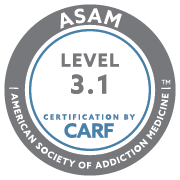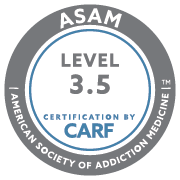“Stop drinking.”
“You drink too much.”
“I’ll only drink on weekends.”
“I’ll only drink when I’m not with my kids.”
“I only drink beer…no hard stuff.”
“It’s normal to drink.”
If any of these above phrases resonate with you, you may be aware that there is a problem with alcohol. But what if one of the reasons you drink is to deal with an underlying mental health issue? What if the alcohol is only a sign of a different issue? When working with clients that are struggling with alcohol use (or any substance use, for that matter), I frequently ask “Tell me why you drink.” So often, they tell me that it helps them with feeling anxious or stressed or insomnia or boredom. It really isn’t about their drinking, it’s about the inability to effectively manage the underlying uncomfortable feeling—often anxiety or depression that has not been treated effectively (or even recognized).
According to the National Institute on Drug Abuse, around 25% of people with a substance use disorder (SUD) also have a co-occurring mental health disorder. What we see in clients, however, is that nearly 80% of people that abuse a substance, with alcohol being the number one abused substance, have symptoms of a mental health disorder and have never been properly diagnosed and treated. It sounds shocking, but let us consider this: many people begin to use and abuse alcohol as a teenager or in their early 20s which is a prime time for the onset of mental health issues. Anxiety disorders (including Generalized Anxiety Disorder, Panic Disorder, Social Phobia, to name a few) are often nebulous and alcohol does a great job of “treating” those symptoms. Worried about what is going to happen at work tomorrow? Have a drink. Stressed out from a long day? Have a drink. Nervous about going out tonight on that blind date? Have a drink. Can’t sleep? Have a drink.
Simply looking at how we treat depressive disorders and anxiety disorders is a big hint about why SUD and mental health so frequently interact. The first line of treatment is often an SSRI (Selective Serotonin Reuptake Inhibitor); the common ones are Prozac (fluoxetine), Zoloft (sertraline), Celexa (citalopram), Lexapro (escitalopram), and Paxil (paroxetine) to name a few. These drugs often take weeks to take full effect and they do not work for everyone. Why would I want to wait weeks to have relief of my paralyzing anxiety when I can drink a beer and feel better immediately?
There are three big reasons why we see so many people with an SUD struggling with mental health:
- There are common risk factors for SUD and mental health (genetics, stress, socioeconomic status)
- Mental illness may contribute to the development and continuance of an SUD (yes, my Prozac helps with anxiety…but alcohol works much faster!)
- SUD can contribute to mental health issues: the consequences of SUD (legal charges, financial loss, divorce, separation from family, to name a few) often result in very normal (but uncomfortable) emotions (depressive symptoms, anxiety symptoms) that can develop into a full-blown mental health issue. Substances also impact the areas of the brain that help us process and regulate our emotions; if the SUD damages those areas, a person is more prone to developing a mental health problem.
So what to do about this? First, talk about it with a qualified professional. A qualified professional is one that has specialized knowledge about SUD and mental health and is capable of effectively assessing and referring to treatment services. A counselor with an LAC (Licensed Addiction Counselor) after their name is someone with specialized education about assessing, diagnosing, and treating substance use. A counselor with either an LCSW (Licensed Clinical Social Worker) or an LCPC (Licensed Clinical Professional Counselor) after their name is a counselor with knowledge and training in assessing, diagnosing, and treating mental health issues such as anxiety and depressive disorders.
Second, collaborate with a qualified counselor or treatment program to identify treatment goals that meet your needs. This may mean getting on medication or doing therapy or both. It is important that your counselor can help you address the symptoms you may be having and helping to determine if the symptoms are related to the substance use or the mental health (or both). It’s important to have a multidisciplinary team to work with: mental health and SUD are complex disorders on their own. When they are both present, it can be even more complicated. An integrated team means there are a counselor, a medical provider and a provider to manage any psychotropic medications. There may be more people on your team as well depending on your needs.
Third, don’t give up hope! Recovery is possible. It takes connecting with others, willingness to be honest and vulnerable and the ability to change in order to heal. Mental health and SUD issues are seen as primary, chronic conditions that often take a lifetime of management. Like any chronic illness, treatment strategies can vary over time and must be flexible and individualized depending on the need of the individual.
If you are interested in how Rimrock can help you or a loved one start the journey to recovery, we are here to help answer your questions. Our Admissions Department can be reached at (406) 248-3175 or (800) 227-3953. Normal admission hours are between 8:00 am and 5:00 pm Mountain Time, Monday through Friday. However, we do have staff available anytime to take your call. Contact us today to begin your journey to recovery.





